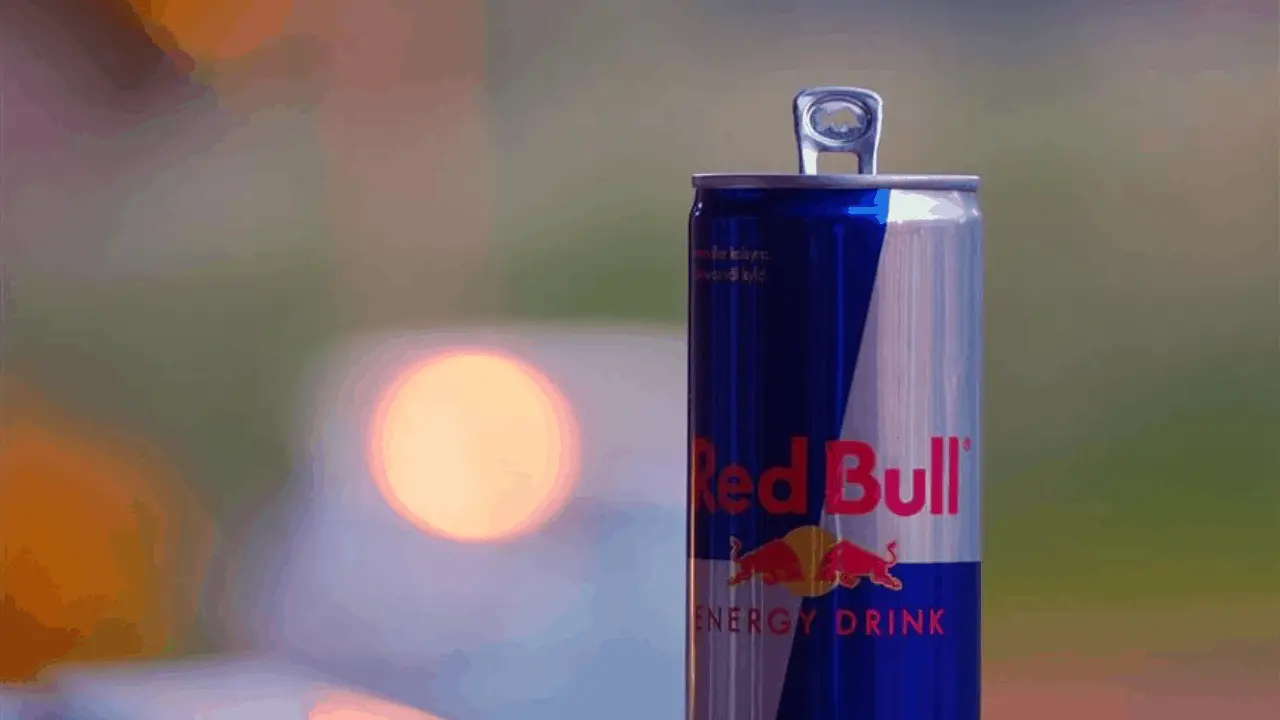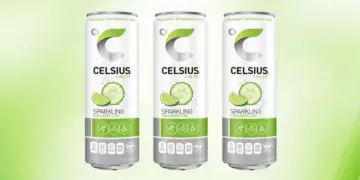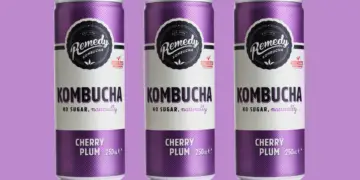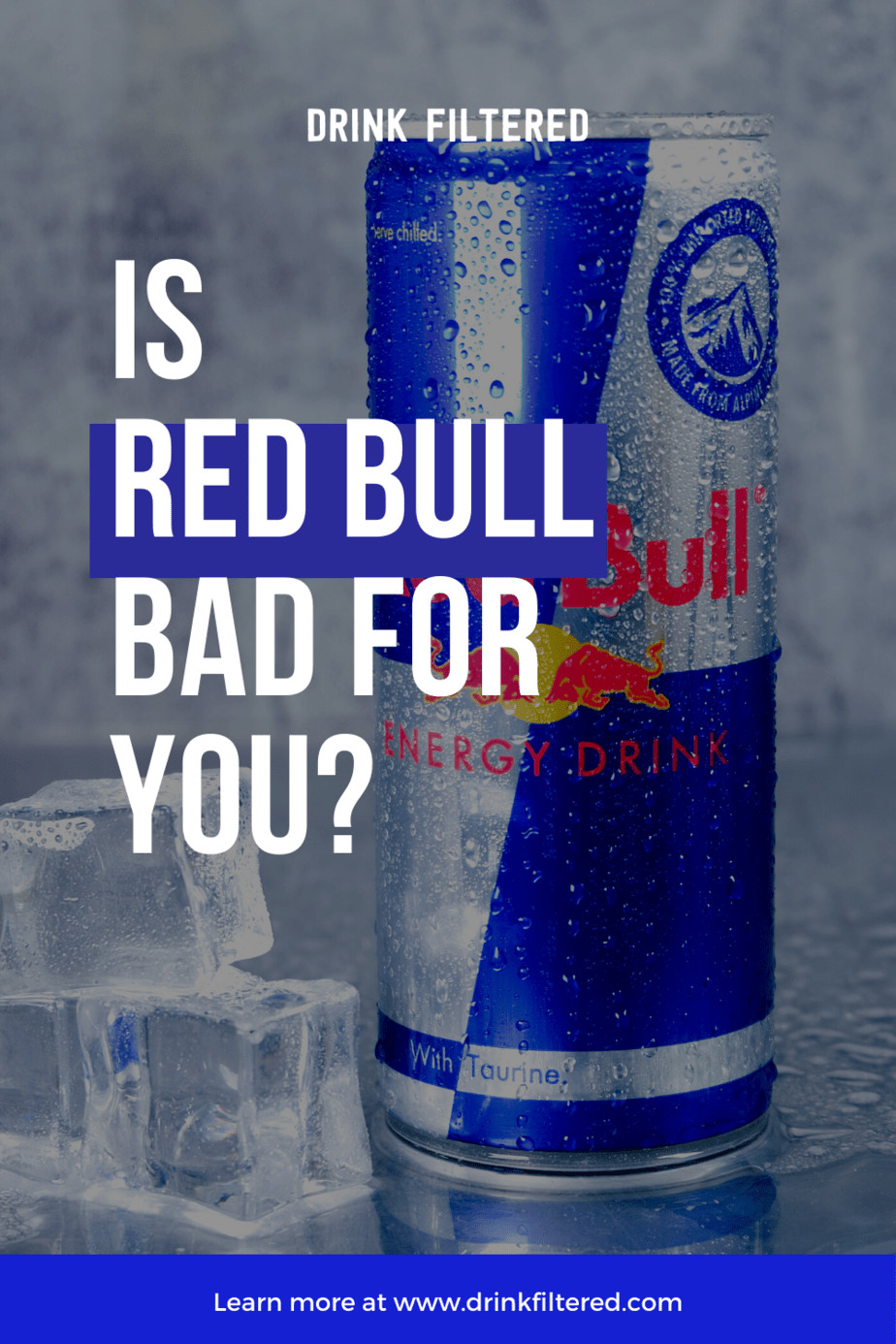Red Bull is one of the world’s most famous energy drinks. It sold about 7.5 billion cans in 2019 and sales show no signs of reducing in the coming years. Strategic marketing will have us believe that Redbull is the perfect energy drink. But as we know, everything we consume affects our health. In this article, we attempt to answer once and for all the question: Is Red Bull good or bad for our health?
The only benefit of Red Bull is that it gives a temporary energy boost because of its high caffeine, sugar, and taurine content. However it is these same ingredients that pose health risks. While drinking Red Bull occasionally is not necessarily bad for you, excessive consumption is.
What is Red Bull?
Red Bull is loved for its distinctive taste, hot pink color, and invigorating effects as an energy drink. It is a favorite for everyone, from exhausted new parents to procrastinating students pulling all-nighters. The drink is even found in the Jagerbomb, one of the world’s most popular buzz-inducing mixed drinks. The origins of Red Bull are actually quite ordinary. It was created in 1987 by a wealthy entrepreneur by the name of Dietrich Mateschitz. He was reportedly inspired to create the drink after arriving in Thailand with an exceptionally bad case of jet lag.
What is in Red Bull?
Red Bull is a mixture of caffeine, sugar, taurine, and B Vitamins. All these ingredients are known for their energizing qualities. Each can of Red Bull contains around 168 calories.
Here is a more detailed breakdown of the ingredients:
- Caffine
- Calcium pantothenate
- Carbonated water
- Citric acid
- Colors
- Glucose
- Magnesium Carbonate
- Natural and Artificial flavors
- Niacinamide
- Pyridoxine HCI
- Sodium Bicarbonate
- Sucrose
- Taurine
- Vitamin B12
That is quite a list, so let’s discuss some of these ingredients in more detail…
Caffeine
Caffeine is widely known to give you an instantaneous but superficial boost of energy. It blocks a chemical in the brain known as adenosine and makes your body release adrenaline.
Red Bull contains 80 mg of caffeine. You may think that Red Bull has a relatively higher caffeine content compared to other drinks. But this amount is roughly the same as that of an average cup of coffee. Nevertheless, it’s important to limit your caffeine intake to reduce the risk of side effects like diarrhea, jitters, and nervousness.
Glucose and Sucrose
Glucose (a monosaccharide) and sucrose (a disaccharide) are scientific names for sugar. It’s important to have sugar in your diet to boost your energy levels. But too much sugar can have some troubling side effects, such as blood sugar spikes and energy surges and crashes.
Red Bull contains 37 grams of sugar. This amount is roughly the same as that of a typical sugary drink. In comparison, Coca-Cola contains 39 grams of sugar.
The daily recommended intake for added sugar is no more than 25 grams for women and 36 grams for men. One can of Red Bull exceeds those recommendations for both men and women.
Taurine
Taurine is an organic compound found in human and animal tissue. It is a type of amino acid that is made naturally in the lower intestine of the human body. It is often included in energy products because of its ability to provide a quick energy boost. The amino acid works within the digestive system to stimulate energy and generate nerve impulses. This impacts the cardiovascular system and central nervous system.
Red Bull contains 1 gram of taurine. Consuming this amount of taurine is not thought to be harmful or dangerous in any way. In fact, the Red Bull website states that the human body contains more than 70 times the amount of taurine as an energy drink.
And just in case you are wondering, taurine does not come from bull sperm, as the common myth states.
What are the Benefits of Drinking Red Bull?
Unfortunately, there aren’t a lot of actual benefits in drinking Red Bull. The only real benefit of the beverage is that it gives you a serious energy boost temporarily. This is thanks to its expertly crafted combination of caffeine, sugar, and taurine.
Nutritionally, Red Bull provides more than 100% of the daily recommended intake of B Vitamins. But these vitamins are water-soluble, and any vitamin that can’t be used by the body is excreted in the urine.
What are the Risks of Drinking Red Bull?
The ingredients that make Red Bull a great energy drink are the same ingredients that can put you at risk. Too much caffeine, sugar, and taurine can have immediate side effects and long-term health repercussions.
Excessive consumption of anything is dangerous. Red Bull is no different.
Immediate Side Effects

You may experience the following side effects if you consume too much Red Bull:
- Increased blood pressure and heart rate. Red Bull can significantly raise your blood pressure and heart rate. If you are in a desperate need for an energy boost, this side effect can help increase your energy levels. But it can be too much that you start to feel that your heart is racing.
- Jitters. Overconsumption of caffeine can come with some disturbing short-term side effects like jitters. If you have ever experienced a shaky feeling after drinking a can of Red Bull, it may be wise to cut back. This is especially true if you get caffeine from other sources, like coffee or Coca-Cola.
- Sugar crashes. Overconsumption of sugar can make your body react in a slightly disturbing way. A sugar crash occurs when your energy levels suddenly drop after consuming a large amount of sugar. Red Bull may give you metaphorical wings. But you may find yourself feeling less magical when those wings suddenly fade.
Long-Term Health Risks

If you continue to drink too much Red Bull, you may eventually put yourself at risk of the following conditions:
- Heart failure. By continuously boosting your blood pressure with Red Bull, you are also continuously adding strain on your heart. This leads to a higher risk of developing heart conditions.
- Hypertension and Type 2 diabetes. If you consistently consume too much Red Bull, you may put yourself at risk of hypertension. With high blood pressure comes the risk of Type 2 diabetes, especially because of the drink’s high sugar content. These conditions could be very difficult to live with. They can force you to make some drastic lifestyle changes. Learn more here.
- Poor kidney function. The sugar and taurine in Red Bull can have serious effects on your kidneys over time. Several studies have shown cases of renal failure associated with drinking the beverage.
- Teeth damage. If you develop a habit of drinking too much Red Bull, the high sugar content can make you suffer from poor dental health. Sugary drinks can damage your tooth enamel over time.
Other Frequently Asked Questions
Here are other frequently asked questions about this energy drink.
What about sugar-free Red Bull? Is it any good?
If you really like Red Bull, consider switching to one of the “healthier” options. Red Bull Sugar-Free and Red Bull Zero contain no sugar at all, so they don’t come with heart-related risks. But these versions contain other sugar substitutes like aspartame.
Is Red Bull worse than coffee?
Red Bull contains 80 mg of caffeine, which is about the same amount you can get from a regular cup of coffee. But Red Bull contains way more sugar, especially if you don’t add that much sugar in your coffee.
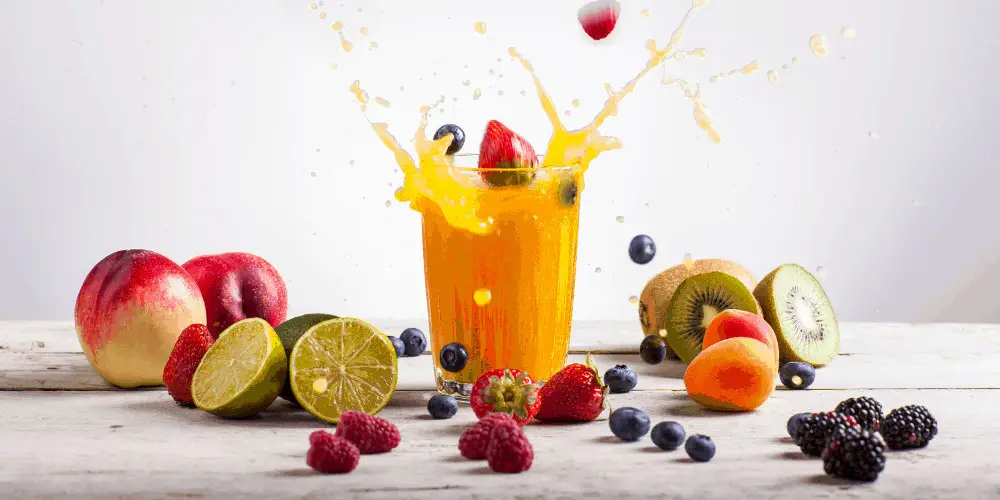
Is Red Bull worse than fruit juice?
Yes, Red Bull is less healthy than fruit juice. While juice can have diminishing nutritional values due to pasteurization and high sugar counts, it doesn’t contain caffeine. Sugars found in the juice also tend to be natural fruit sugars. (Natural or not, take note that sugars are not good when consumed in excess.)
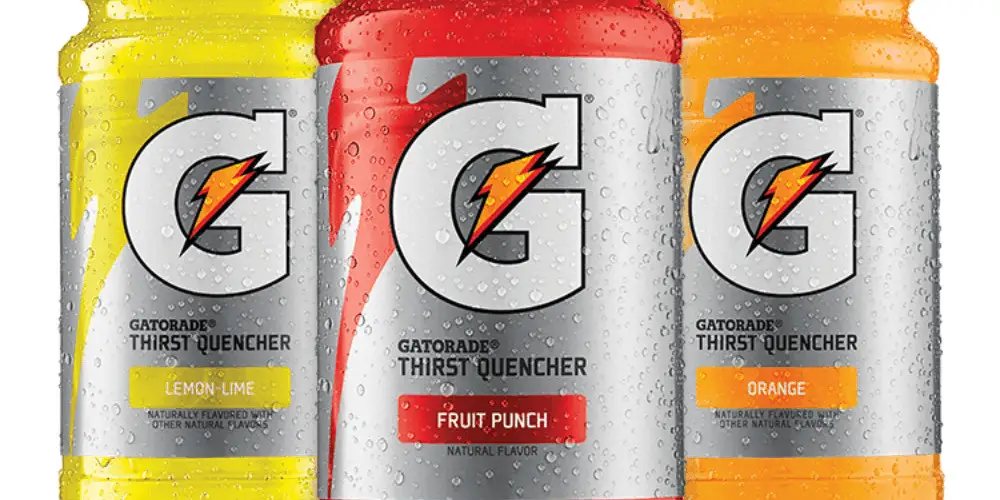
Is Red Bull worse than Gatorade?
Gatorade is technically a sports drink, designed to replenish electrolytes that athletes lose through sweat. With their electrolytes replenished, athletes can get an extra boost in energy. Gatorade does have its fair share of side effects just like Red Bull. But if we compare the ingredients in both drinks, Gatorade comes out on top. It has fewer carbs (or sugar) and no caffeine. Gatorade is definitely preferable for an energy boost for athletes.
What are the Healthiest Energy Drinks?
If you think Red Bull is a “dangerous” drink because of its immediate side effects and long-term risks, are there any “healthy” alternatives? If you are looking for beverages that can boost your energy without putting you at risk of the conditions mentioned above try some of these, energy drink alternatives. All of them are low in sugar and caffeine. And some of them are actually good for you.
Final Thoughts
As with most drinks, moderation is key when it comes to drinking Red Bull. We recommend limiting your intake of Red Bull as much as possible because of the health risks. One can of Red Bull every now and then probably won’t hurt, but you should avoid making drinking this beverage a habit.
Have you experienced any side effects from drinking Red Bull? Have you tried kicking the Red Bull habit? Let us know we would love to hear from you!

